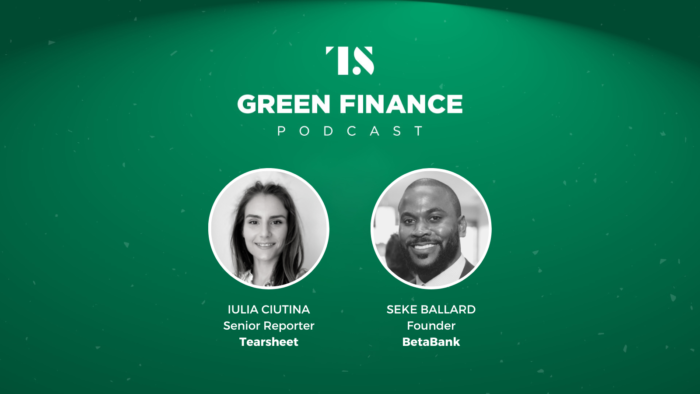The Green Finance Podcast
The Green Finance Podcast Ep. 6: The fight against financial discrimination with BetaBank founder Seke Ballard
- Despite US laws aiming to protect against discriminatory lending practices, a disproportionate majority of those refused capital in traditional banks are historically underrepresented and underserved groups.
- Our guest today is Seke Ballard, founder and CEO of BetaBank – a digitally native, Black-owned bank built for SMBs with a mission to provide fair, accessible, and cost-effective deposit and lending services to all.








